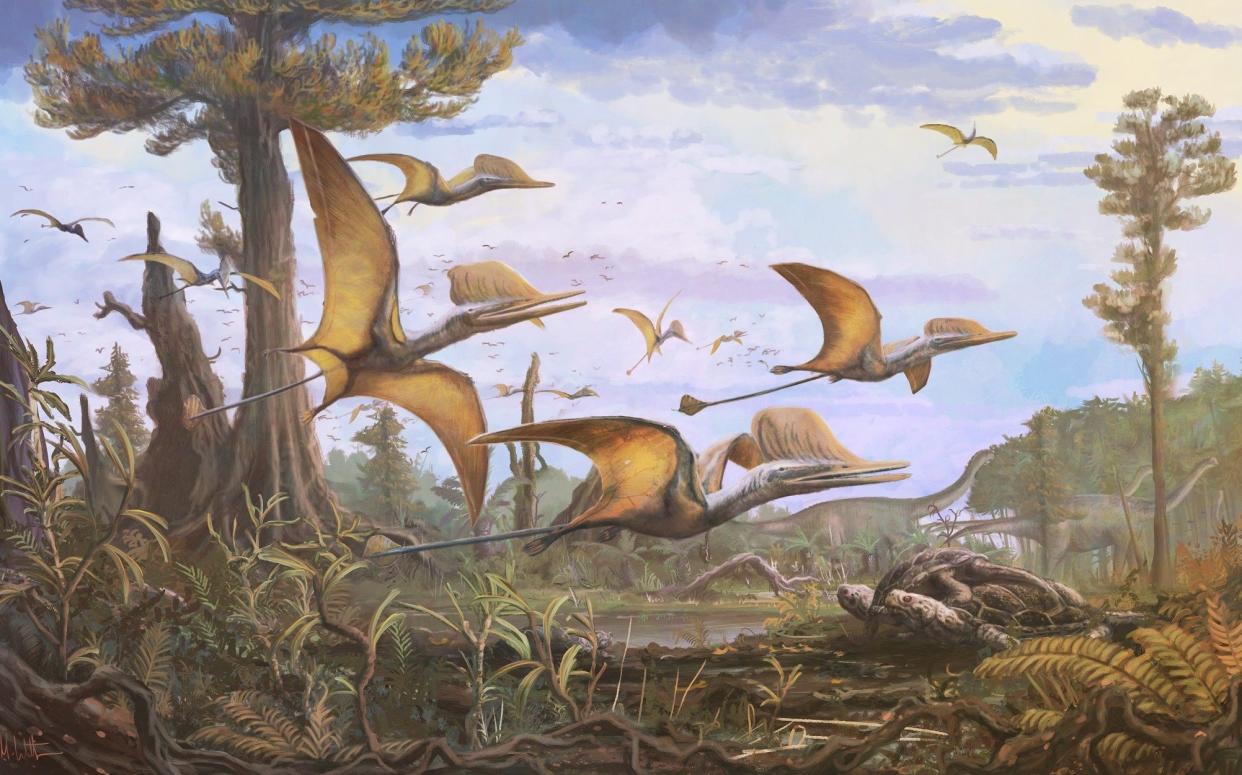Today, mariner was skimming through Associated Press news and came across an article about the discovery of a new flying dinosaur called Ceoptera:

It was unearthed on the Island of Skye in Scotland. It survived for 2 million years between 168 – 166 million years ago. The article caused mariner to think about time as a ruler with which to measure the biosphere. For example, today the Isle of Skye is nothing but jagged, treeless mountains and not the warmest place to be. What was it like 168 million years ago? In fact, Skye emerged in the Precambrian Age 538 million years ago and was a torrent of volcanoes; certainly no Ceoptera could have survived until 370 million years later!
The Earth stabilized into a planet 4.5 billion years ago. Is there a constant time called ‘Earth time’? Earth seems to have its own calendar of activities from totally dry to covered in oceans, to ice ages and even an occasional meteorite. After 300,000 years of stable weather, it seems the planet has decided to grow warmer. Ultimately, Earth abides by Sun time – a life span of about 15 billion years.
Mariner suspects there must be different clocks for different types of biosphere. 538 million years is a long, long time for Ceoptera to wait and then live only 2 million years. The first primitive life form that can be called an animal emerged 550 million years ago. Trees have been around for 450 million years;
Moving forward, the first mammal emerged 225 million years ago; the first primate came along 65 million years ago; monkeys showed up 40 million years ago and primitive homo types split from chimpanzees 6 million years ago.
Australopithecus is a genus of hominin that evolved in eastern Africa approximately 4 million years ago and went extinct about 2 million years ago. H. erectus appeared approximately 1.8 million years ago and we came aboard 260,000 years ago.
Readers may recall this paragraph from a recent post:
“Readers know that recently tech scientists were able to create a self-producing biological app by connecting an electronic sequence with the chemical sequence of a chromosome. Stephen Hawking and Albert Einstein both said that if electronically-driven devices can reproduce themselves, the humans would become extinct because of the overhead of mammalian survival.”
Is sapiens already on notice? Every species in history survived only within a viable relationship with its environment. Today, there are headlines about overpopulation, inadequate food sources, and a disruption of the atmosphere that has urged Earth to move on from 300,000 years of stable weather, give or take a couple of ice ages.
Given these numerical references, perhaps there is a singular life time for planet Earth – tied to its parent Sun. The measuring tool is in units of 10 million years incremented by tenths. Time moves constantly toward that moment when a dying Sun will consume the planet – about 5 billion years from now.
On the other hand, evolution seems to accelerate across time. For example, Ceoptera hung around for 2 million years. We Homos have been around only for 260,000 years. Our successors already have arrived. How long will a robot-driven animal survive?
This leads mariner to surmise that evolutionary time is not a constant time. Measuring evolutionary time behaves more like the algorithm for falling through gravity: distance = 1/2 gt2

For each second one falls, they fall the square of the previous second. For example, one falls 1 foot in the first second, 4 feet the second, and so forth (see chart).
Similarly, changes in evolution happen faster and faster as time passes. There are few folks who think humans will be around 2 million years from now as ceoptera did.
Mariner will not dwell on examples of Armageddon. We shall experience existence as due course in the timeline of evolution.
Ancient Mariner


